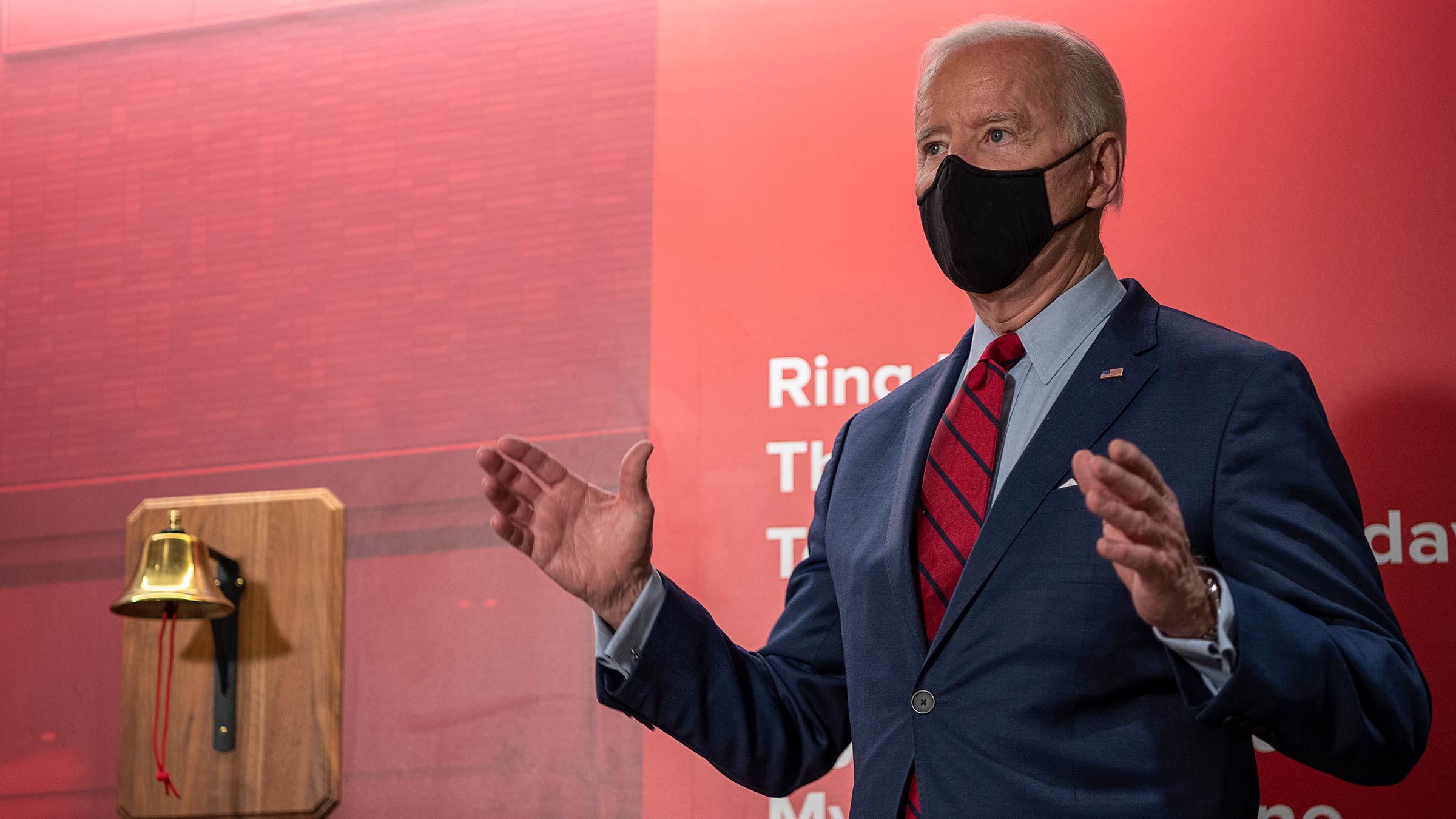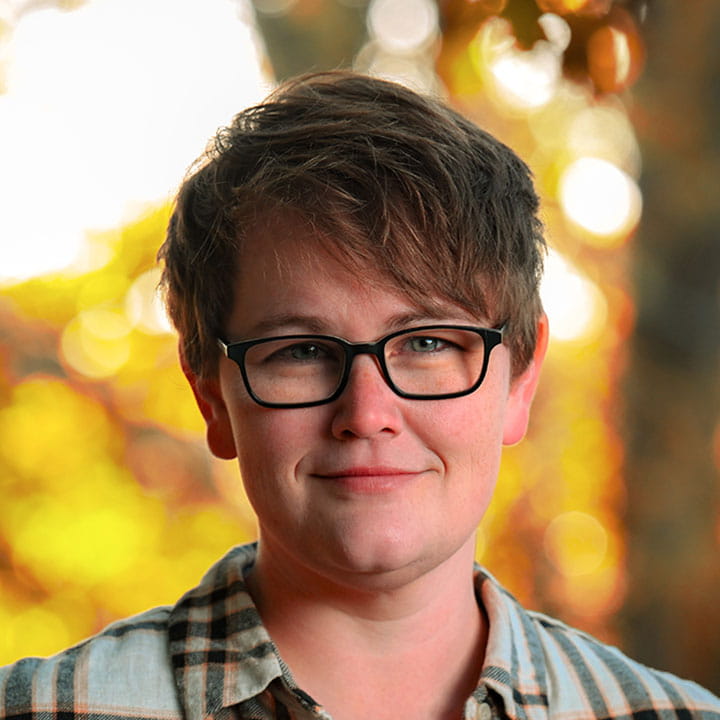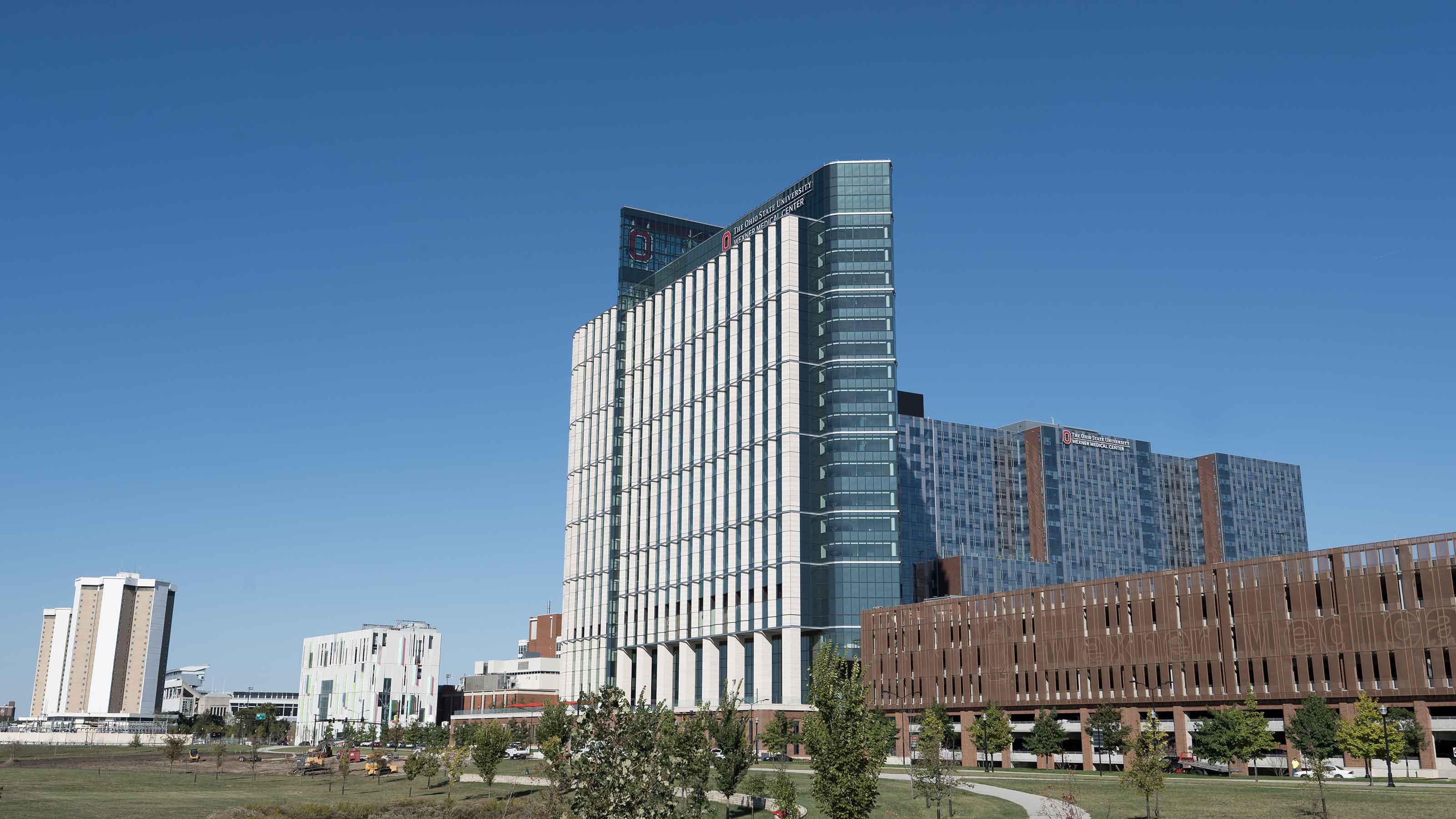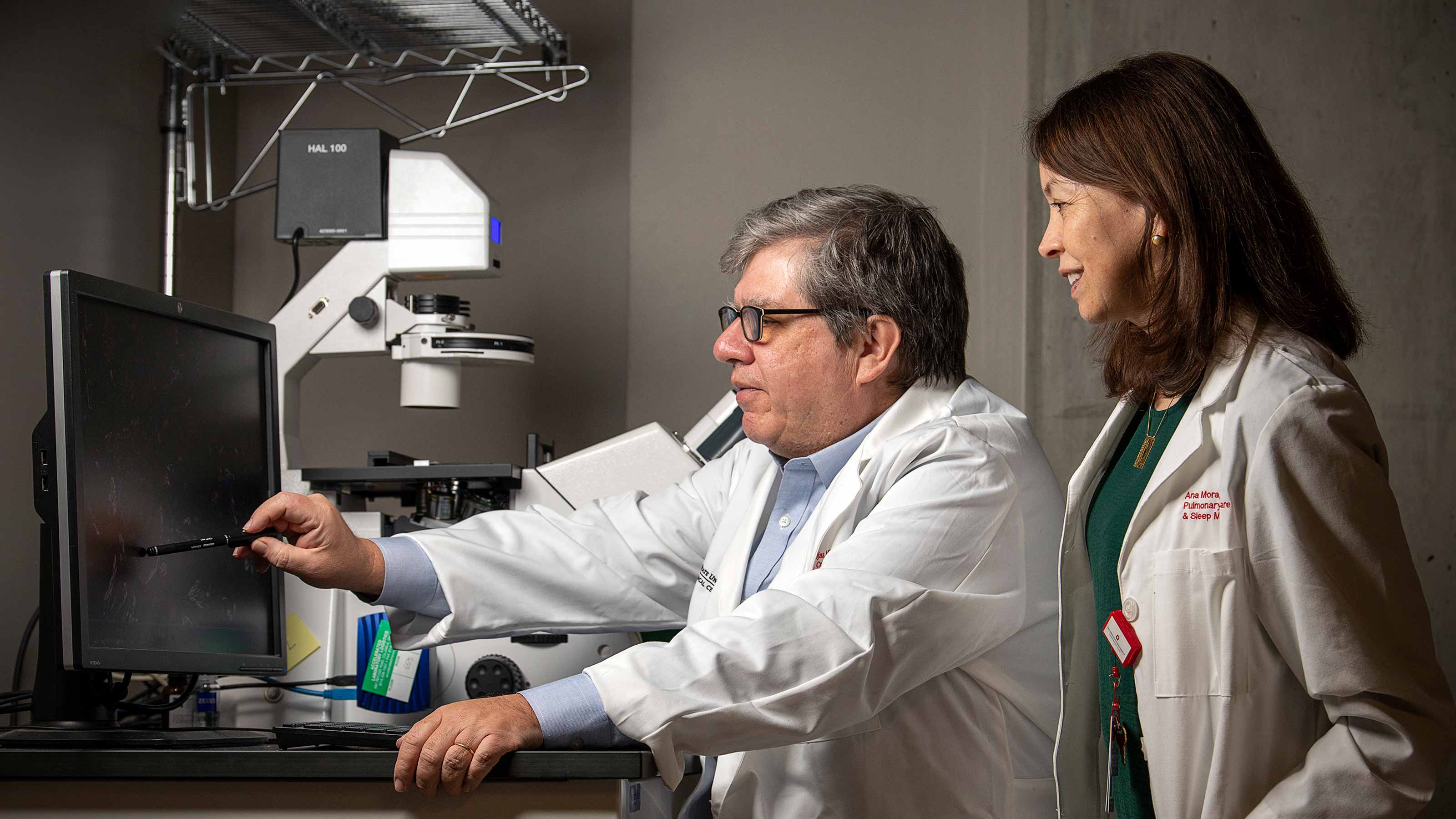
IN HIS STATE OF THE UNION address this week, President Joe Biden again pitched his "cancer moonshot" initiative, which began during his time as vice president under Barack Obama. Like the rallying efforts in the United States' 1960s race to the moon, the cancer moonshot is meant to pull together government resources and political will to drastically reduce the mortality rate of cancer and speed the rate of research discoveries.
"Let this be a truly American moment," Biden said Tuesday, "that rallies the country and the world together and proves that we can still do big things."
Biden pointed to President George W. Bush's leading a bipartisan effort to combat AIDS globally.
"It's been a huge success. He thought big, he thought large ... I believe we can do the same thing with cancer."
Cancer's remaining grip on mortality rates
More than 50 years after former President Richard Nixon signed the National Cancer Act and declared a “war on cancer,” Americans diagnosed with cancer today have a much better chance of survival — cancers that were once a death sentence can now be managed as chronic and even curable illnesses. But cancer remains the second-leading cause of death in the United States behind heart disease.
In February 2022, Biden announced the relaunching of the initiative that first began in 2016 — just a year after the then-vice president lost his son Beau to brain cancer. His relaunch declaration detailed both the challenges currently facing researchers, doctors, patients and their families, and what he described as “completely do-able” goals to bring us ever closer to a cancer-free world, including reducing the death rate of cancer by at least 50% within the next 25 years.
What the moonshot can accomplish
“When we work together, there is nothing beyond our capacity,” Biden said in 2022. “Let’s show the world what’s possible. Let’s show the world we’re committed. That we can do big things. The United States of America — when we work together, there’s nothing beyond our grasp.”
At The Ohio State University and The Ohio State University Comprehensive Cancer Center – Arthur G. James Cancer Hospital and Richard J. Solove Research Institute (OSUCCC – James), scientists and health care providers have long been committed to achieving these goals, as Biden saw himself in a visit to the OSUCCC – James in 2021.
“The Cancer Moonshot has tremendous potential impact,” says Raphael Pollock, MD, PhD, director of the OSUCCC – James. He notes that prioritizing increased screenings, especially, in communities that have limited health care access makes the goals of the initiative “very achievable.”
Pollock and the cancer experts at The James have been dedicated to eradicating cancer through patient-centered care, groundbreaking research and excellent education.
Here are some of the ways Ohio State is committed to the multi-pronged goals of the Cancer Moonshot and the enduring vision of a cancer-free world:
Preventing cancer
Biden said that while we have few effective ways to prevent cancer today, scientists are looking at mRNA technology that could be used to stop cancer cells in their tracks, and that we can better address environmental exposures to cancer. At the OSUCCC – James, scientists are discovering that…- An oral drug currently used to treat neuromuscular disease could also help prevent a common form of skin cancer caused by ultraviolet-B (UVB) radiation from the sun
- A new computer-aided system for screening colonoscopy could reduce interval colorectal cancer rates by more than 40%
Diagnosing cancer sooner
One of the keys to successful cancer treatment is early diagnosis. The Biden administration acknowledged that we must increase access to existing cancer screenings and support patients through the diagnostic process, while expanding the number of cancers that we regularly screen for.At Ohio State, we’re…
- Helping update guidelines for lung cancer screenings implemented by the U.S. Preventive Services Task Force, which serve as an important benchmark for eligibility and access to government- and private-payer insurance coverage of cancer screenings, and reaching out to provide world-class lung cancer screening to more people
- Increasing access and efficiency in the diagnostic process, especially during the COVID-19 pandemic
Addressing inequities in access to diagnostics, therapeutics and trials
Equity in health and health care remains a critical issue worldwide. “We can ensure that every community in America — rural, urban, tribal and everywhere else — has access to cutting-edge cancer diagnostics, therapeutics and clinical trials,” Biden said.Ohio State has made health equity a primary goal in research, education and care. Some recent work includes…
- Confirming the differences in surgical outcomes between patients of different backgrounds, such as those between older minority cancer patients and white patients with similar socioeconomic factors
- Increasing access to genetic counseling and ensuring appropriate screening, follow-up care and treatment for breast cancer, especially for Black women, who are 42% more likely to die of breast cancer than white women
- An OSUCCC – James Center for Cancer Health Equity that includes a mobile mammography unit, a cervical cancer outreach program, free colorectal screenings and more
Targeting the right treatments to the right patients
One of the struggles of cancer care today is that we’re still learning how to match the best treatment to each patient. However, prioritizing work in genetics, immunotherapy and precision medicine can help cancer doctors develop better, individualized courses of treatment that are most likely to work for that person.The OSUCCC – James launched the Pelotonia Institute for Immuno-Oncology (PIIO) in July 2019, focusing on advancing the ability to harness the body’s immune system to fight cancer at every level, from prevention to treatment and survivorship. In addition to the PIIO, we’re learning more about how cancer works:
- Genetics research at Ohio State could soon lead to “personalized cancer vaccines”
- Ohio State pancreatic cancer researchers are studying the cancer’s association with obesity
- Digital pathology experts at the OSUCCC – James are revolutionizing how pathology is used to diagnose cancer
- Ohio State scientists have published new research on how “modifiable patient characteristics” like body mass index may affect the body’s ability to naturally identify and defend itself against cancer cells
Speeding progress against the most deadly and rare cancers
There are more than 200 types of cancer, and each requires its own treatment approach — in addition to individual patients needing treatment plans that are customized to their bodies and lives. The Biden administration says we can invest in a “robust pipeline for new treatments,” especially after the COVID-19 pandemic response has shown that we can accelerate clinical trials without sacrificing safety or effectiveness.
New investments can further bolster the development of treatments like those developed at the OSUCCC – James, whose researchers are on the fast track to developing new therapeutics, such as:
- Ohio State precision cancer medicine clinical trials giving patients access to new options to keep their cancer from spreading
- Recently identifying new, effective treatments for high-risk hairy cell leukemia, cervical cancer, liver cancer, advanced endometrial cancer and more
Supporting patients, caregivers and survivors
For some families touched by cancer, they feel lost while trying to navigate diagnosis, treatment and the aftermath. “We can help people overcome the medical, financial and emotional burdens that cancer brings by providing support to navigate cancer diagnosis, treatment and survivorship,” Biden said.At Ohio State, cancer care stretches beyond the patient to their families, and it stretches beyond treatment into survivorship, while using tools along the way to ease emotional and financial struggles. That includes the many supportive clinics and programs for patients with cancer and their families at the OSUCCC – James, as well as research efforts benefiting survivors — for example, the development of a new surgical procedure to dramatically restore mobility and reduce pain and tissue breakdown for people with prosthetic devices. Available therapies for patients and caretakers include music therapy, gardening and nutrition guidance, occupational therapy and more.
Learning from all patients’ experiences
A final goal listed by the Biden administration was to work harder to learn from the experiences of patients with cancer, noting that the diverse personal experiences of patients and their families make their input “essential in developing approaches to end cancer as we know it.”It’s something held sacred by the faculty and staff at the OSUCCC – James. Ohio State’s groundbreaking research relies on understanding the experiences of patients and caretakers, and on collaborating effectively among multidisciplinary teams and other institutions. This is how we’re able to learn…
- How chronic stress affects outcomes in patients with breast cancer
- How unique autopsy trials can show us treatment effectiveness on a molecular level
- Which immune therapies could be best for treating recurrent breast cancer
- The patterns that show up among patients who develop resistance to certain small-cell lung cancer therapies
At The Ohio State University Wexner Medical Center and the OSUCCC – James, we welcome President Biden’s challenge and appreciate the White House’s call to mobilize the federal government to help achieve these important goals in creating a cancer-free world.

Accurate, early cancer diagnosis matters
The James Cancer Diagnostic Center gives patients direct, expedited access to diagnostic testing and consultation with Ohio State cancer experts.
Schedule an appointment today




